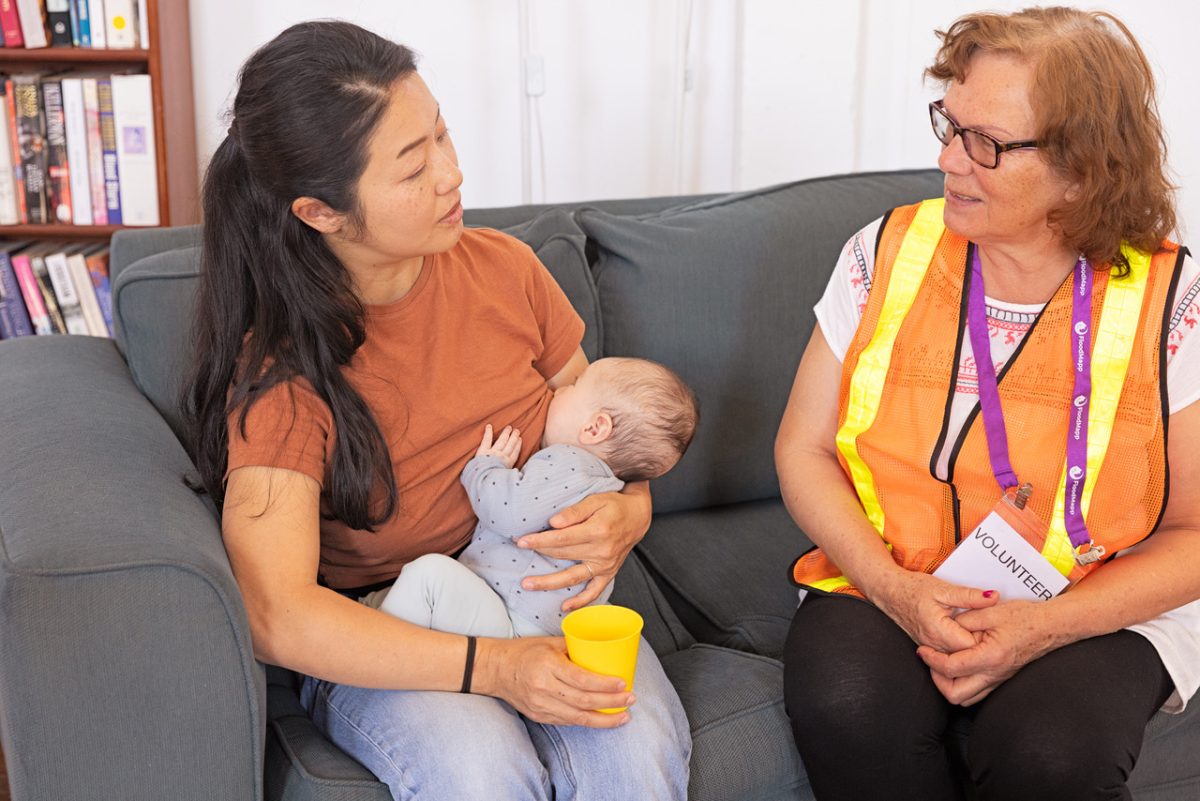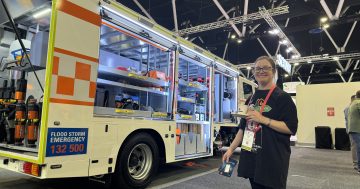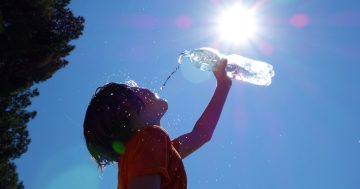
Many mothers end up stopping breastfeeding even though during a disaster is the worst possible time to do so. Photo: Infant and Young Children in Bushfire Emergencies Project.
With climate-charged disasters on the horizon for families across Australia, it’s crucial to be prepared and informed, especially when young children are involved.
During times of crisis, access to electricity, clean water, and food can be restricted. In overcrowded evacuation centres, poor hygiene can lead to gastroenteritis outbreaks. In such circumstances, breastfeeding protects infants, offering safe nourishment, hydration, protection from infections, and a sense of comfort and security.
However, emergencies can be challenging for mothers and they sometimes worry that the stress of the emergency will reduce their milk supply.
Consider one new mother’s experience during the height of the Black Summer bushfires as an example. Her son’s six-week check-up was cancelled due to the imminent threat of bushfires and after being evacuated, Sarah (last name withheld) spent 24 hours in a local evacuation centre, sleeping in her car with her baby.
Sarah’s baby was very fussy during the evacuation, demanded frequent feeding, and didn’t sleep well. She worried that her milk supply was dwindling because of the stress she was under and got a tin of donated formula at the evacuation centre, only to return home to a power outage and a ‘boil water’ notice.
She didn’t know what to do; she believed that her baby needed more milk than she was making but knew it wasn’t safe to formula feed without hot water to make formula and keep bottles clean.
Experiences like Sarah’s are not uncommon during disasters. The Australian Breastfeeding Association’s Babies and Young Infants in Black Summer Study discovered that breastfeeding mums needed more support to navigate feeding issues and, some mothers weaned before they planned to. Misconceptions about stress and breastfeeding among mums and the emergency responders supporting them were not uncommon.
A better understanding of how breastfeeding works can help mums to keep breastfeeding.

With the right information and support, mothers can provide their babies with the nourishment and comfort they need, even in the face of adversity. Photo: Kylie Verdouw.
Breastfeeding works on a demand and supply basis. During pregnancy, hormones develop the structures needed to make milk, and after childbirth, breasts automatically start to produce milk. As time goes on, milk making moves to what is called a ‘demand and supply’ way of working. This means that the more frequently a baby feeds, the more milk the breasts produce.
Stress cannot interfere with this process of milk production. Just like your kidneys keep working when you are stressed, so too do the breasts.
However, babies do pick up on the stress of emergencies. They may not understand what is happening, but they know something is up. Evacuation places may be noisy and strange to them. They can see that their parents are stressed. They respond to this by wanting to be held and fed more and by waking more overnight and generally being more fussy than usual.
Here are some tips for breastfeeding during emergencies:
- Expect increased feeding – Babies may breastfeed more often during emergencies for both comfort and nourishment. Keeping your baby close and breastfeeding frequently is crucial to maintaining your milk supply.
- Stay hydrated – Dehydration can impact milk supply, so try to drink enough water, even when water is scarce. It’s vital for both you and your baby.
- Recognise the signs of your baby getting enough milk – If your baby has at least five heavily wet nappies in 24 hours, pale urine, and appropriate stool consistency, it’s a sign they are receiving enough breastmilk.
- Relax and reduce stress where possible – While stress can’t reduce milk production it can sometimes slow milk flow and babies can respond to this by being fussy while feeding. If this happens, breathe slowly and deeply and focus on your baby and think about how much you love them. These loving feelings make your brain make more of the ‘love hormone’ oxytocin which tells your breasts to let the milk freely flow.
- Seek help when needed – If you are concerned about your milk supply or having other difficulties with breastfeeding, contact a healthcare provider or the National Breastfeeding Helpline on 1800 686 268, available 24/7 for support. With the right help, you can continue to breastfeed your baby through the emergency.
Things you can do to prepare for an emergency:
Stay informed, be prepared, and leave early – Well before a disaster occurs, make sure you pack an emergency kit for you and your baby. The Australian Breastfeeding Association has created checklists and other resources to help you prepare. Keep up to date with relevant apps and plan to leave early to a family or friend’s house, if possible.
If you are exclusively expressing milk, learn how to hand express and cup feed so that you can keep feeding even if you have no water for washing. Even very young babies can be fed using a cup. Be sure to have paper cups on hand to ensure you’re prepared in case of power outages or water shortages for cleaning.
A message to emergency responders – Your support can make a significant difference for mothers during emergencies. Prioritising their access to services and providing private spaces for breastfeeding in evacuation centres can greatly assist them in caring for and breastfeeding their babies. We encourage you to take advantage of the free e-learning module designed to enhance your knowledge of disaster support for babies, toddlers, and their caregivers, which is accessible here.
Breastfeeding during emergencies may present added challenges, but with the right information and support, mothers can provide their babies with the nourishment and comfort they need, even in the face of adversity.
Dr Michelle Hamrosi is co-author of a story originally published in The Conversation.
Original Article published by Dr Michelle Hamrosi on About Regional.









